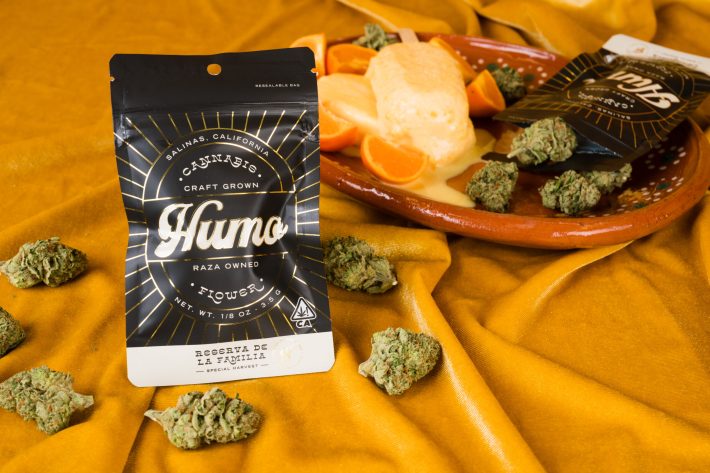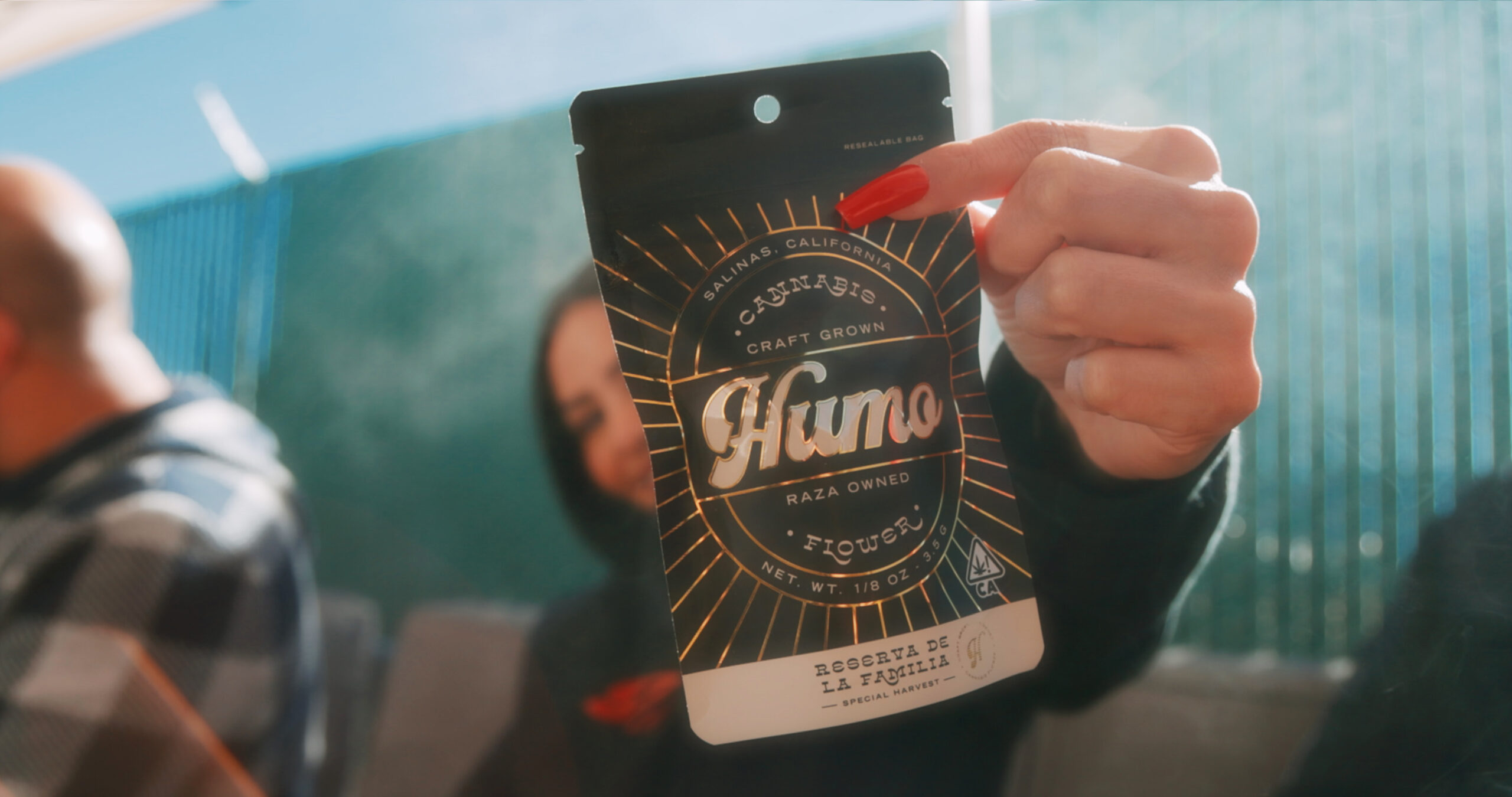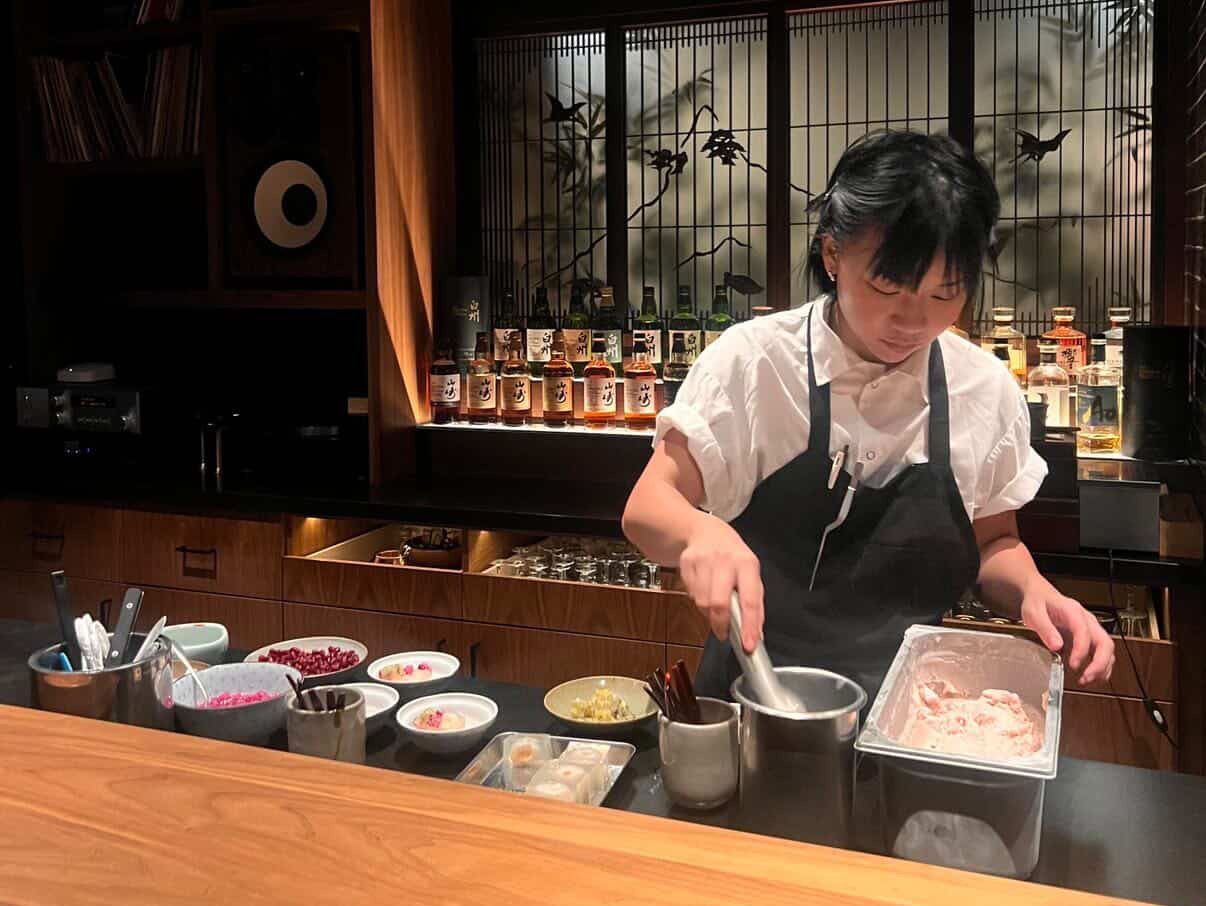L.A. TACO is proud to partner with Humo to present the following feature. Humo is a Raza-owned cannabis company in California out to break generational prejudice against weed and educate people about its sustainable practices and ethical lifestyle.
Yield.
It’s the name of the game in the cannabis industry. Whether it’s growing strains that yield the most THC-heavy flowers, yielding to excessive state taxation, or yielding into the merger lane and waiting to enter an already heavily congested industry where 90% of it is dominated by white folks, mostly males.
For women of color, it can feel like there isn’t a lot of lanes left to merge into. But if Los Angeles has taught Susie Plascencia anything, it is that you sometimes have to be a nonconformist and blaze your own path (pun fully intended).
"Reserva de la Familia,” the newest line from her brand, Humo, symbolizes that; highlighting strains of cannabis that might not yield conventional quantities but produce quality buds so potent, stunning, and tasteful, they’re worth making space for.
In addition to the diversity problem, cannabis businesses in California are either shutting down, moving out of state, or returning to the black market. According to a recent post by Cal Matters: “Cultivators who can barely make ends meet are laying off employees, slashing expenses, or shutting down their farms. For many, the situation is verging on despair.”
There was a time when a pound of weed was sold from $2,200 - $2,800, but today’s growers are lucky to get $400.
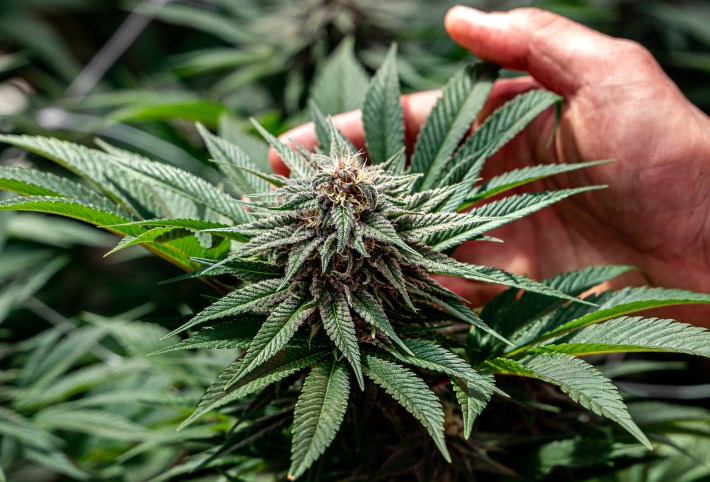
You can almost taste the industry’s stress in today’s buds as growers prioritize cost-cutting methods and increasing overall yield, while compromising product quality and the overall experience. It’s become challenging to find a cannabis product that doesn’t induce a foggy high or finish with a weed hangover. The chemicals, fertilizers, and stresses the plants has to endure to reach profitability are ruining everyone’s high.

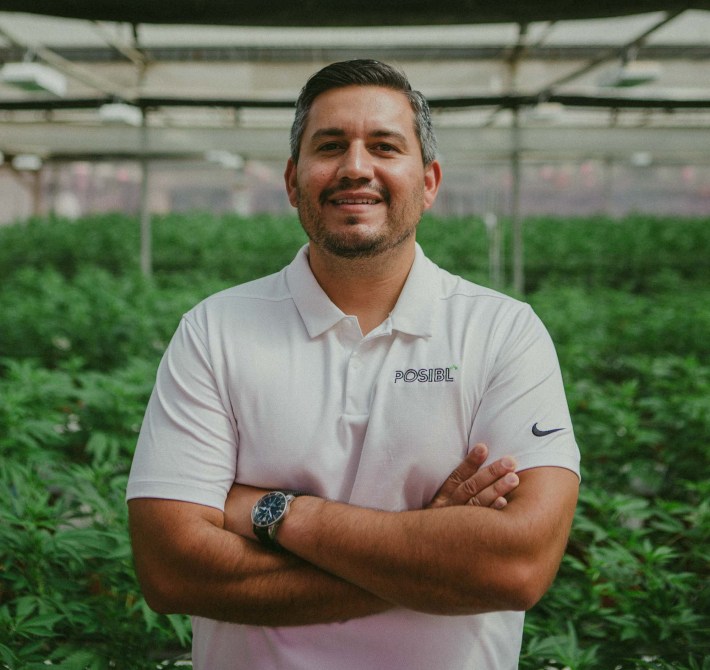
So how does a Latina break into today’s cannabis space, let alone in today’s hostile business climate, and create a space for Raza in cannabis? For Plascencia, the goal was to create jobs that benefit the people who were most victimized by the War on Drugs.
In California, only 3.2% of the industry is Latino-owned, and most of those businesses are either dispensaries, CBD brands, or creams and oils. Others make paraphernalia, of which Plascencia is already one of that 3.2%, leading with her bong brand, MOTA Glass. Only a handful of actual growers are owned and operated by Raza.
The answer lay with Posibl, a Mexican-owned and operated cannabis nursery in Salinas, California, whose owner and investors are from the city of Hermosillo in the state of Sonora, Mexico. Posibl, an outside player from Mexico, experimented with an innovative approach to growing flowers.
It began by analyzing the two common approaches to growing weed in California. Outdoor farms are favored in Northern California, where open land is abundant, and the sunshine contributes to great-tasting flowers and low electricity bills. Still, cloudy days and colder months will affect yield quantities. In larger cities like Los Angeles, it’s all about indoor growing, with temperature-controlled climates, CO2 boosters, and grow lights maintained with a fixed schedule that may result in a high yield, but with the added cost of buzz-killing bills.
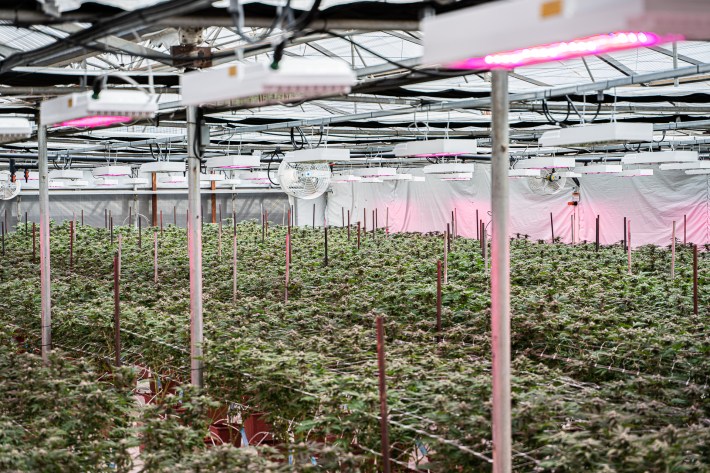
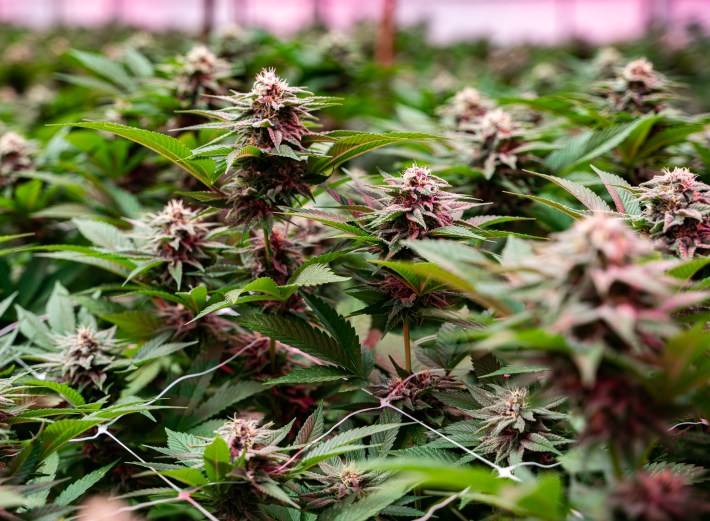
Posibl looked at these methods and asked, "Why not merge the best of both?"
In a pair of 100,000-square-foot greenhouses, the fully automated facilities depend mainly on sunlight, with portions of their grow spaces fitted with lights to compensate for cloudy days and longer nights.
“In Los Angeles, there’s this misconception that indoor-grown was the best weed,” Plascencia tells L.A. TACO. “But it’s really all about the sun. The full spectrum really affects the terpenes and the flavor.”
Seeing what’s possible with mixed light, combined with natural approaches to pest management, such as nurturing beneficial mites in the greenhouses, Humo and Posibl are growing high-yielding, award-winning strains, like their Limonada, with smooth, potent tastes and stress-clearing highs.
Generally speaking, the high from most strains will feel like fresh ocean breezes on a clear, bright day. Not fog or dirty highs from chemically-laced buds; just clean, refreshing seshes.
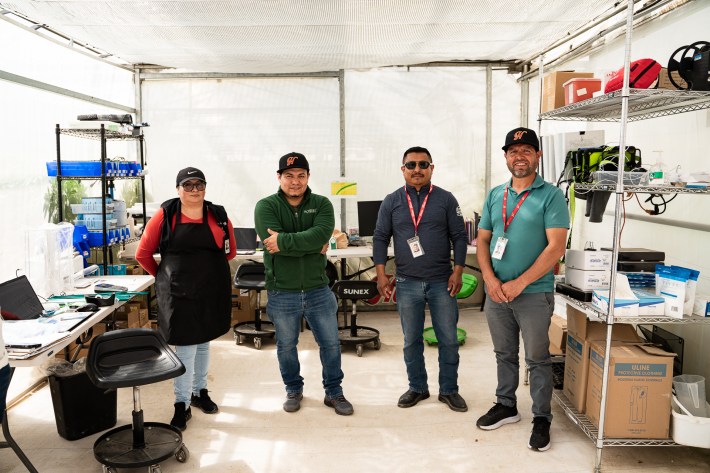
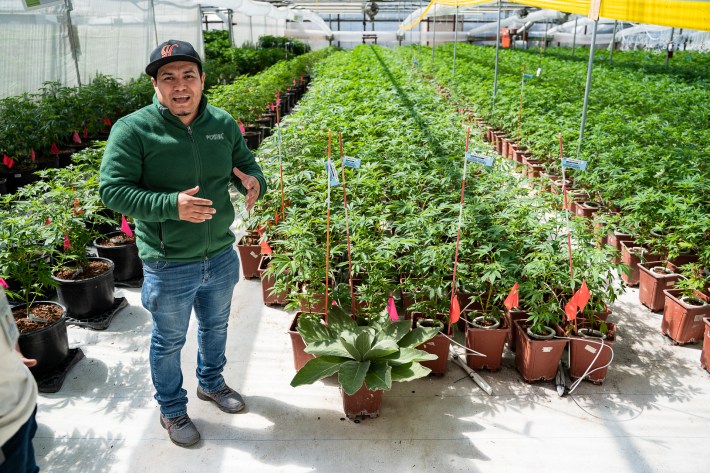
Humo and Posibl dedicate a weekly meeting to tasting all new potential strains from their preferred breeders, Purple City Genetics, an Oakland-based collective. During their weekly get-togethers, they put each new candidate to the test, analyzing plants for potential yields, flavors, terpenes, and the type of high they provide.
“Sometimes, we would find a plant that gave the most amazing highs or had the best flavors, but the yield was too low, and we wouldn’t put it into production," Plascencia explains. "We’d keep those flowers as our own private reserve collection."
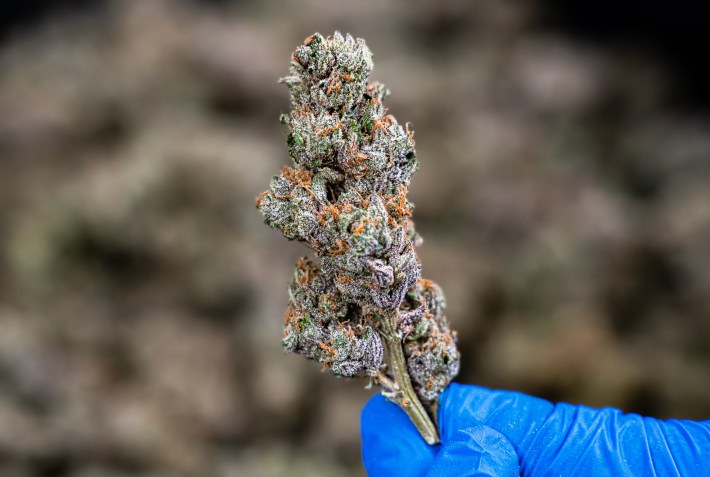
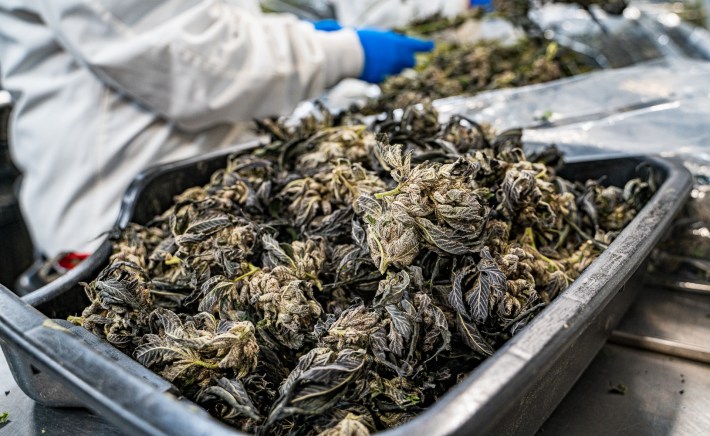
It finally occurred to the team during one of these seshes; why not package these flowers for limited runs and treat them like a tequila brand’s private reserve? With Posibl’s mixed-light method, the most unique buds are given Latino-centric names that reflect their taste and scents.
The Crema Naranja has a creamsicle flavor, with the Blue Dream-like mental effect of activating your creative juices. The other Reserva out right now, the Neverita, has a tight nug structure that will get you stoned without the heavy couchlike effect. It’s a savory flavor with earthy notes.
It’s fitting that Humo decided to release this Reserva de La Familia to the public rather than operate solely by market-driven forces. The quantities are too low to make any profit, but just because the batches are small, it doesn’t mean these flowers shouldn’t get a shot at entering the market. It’s another example of how Humo creates its own lane instead of following the industry norms.
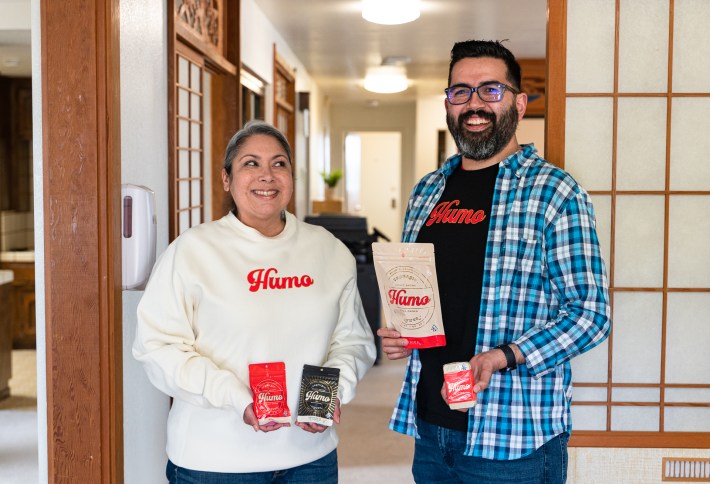
Posibl is not only defying the market, but doing it on an old Japanese Chrysanthemum farm that was put out of business by NAFTA. In fact, on the stretch of road where Posibl’s farm is located, ten cannabis growers once existed. Today, only three remain.
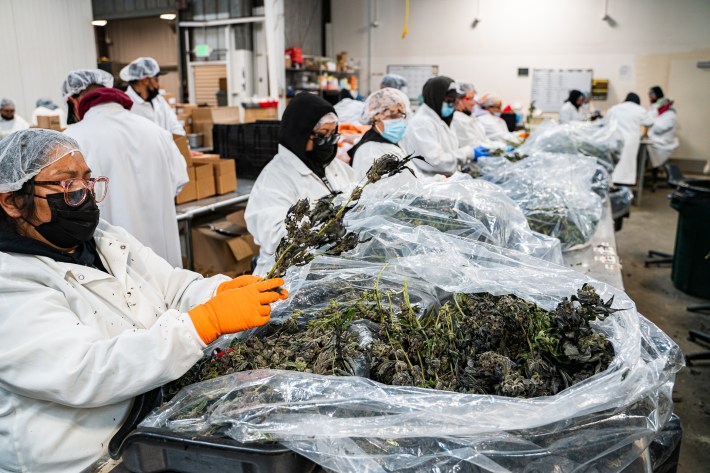
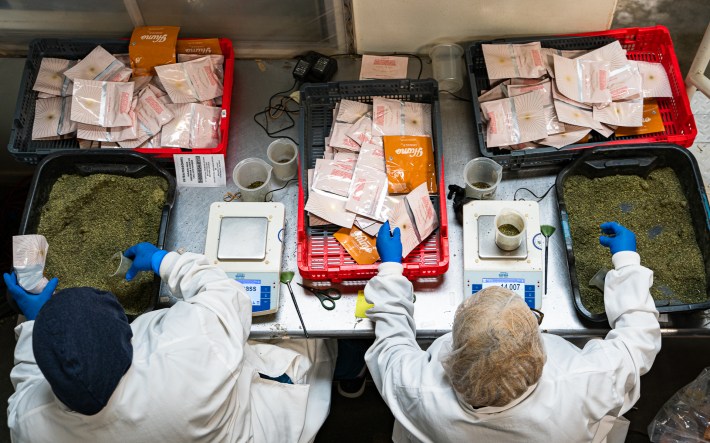
The other secret to Humo's success is that they no longer sell by the pound. Everything is packaged on-site, primarily by women who look like the tías who were more likely to be scolding you at a quinceñera for going out for "a walk" and returning with bloodshot eyes than packing joints and weighing out eighths.
But it’s not just about effective growing practices and meticulous selection process. Plascencia knows who she’s selling to, a completely overlooked demographic of people who the industry has failed to include: herself. It’s by Raza for Raza. And Reserva de La Familia, like Raza in the cannabis industry, might be limited in quantity, but not obsolete.
